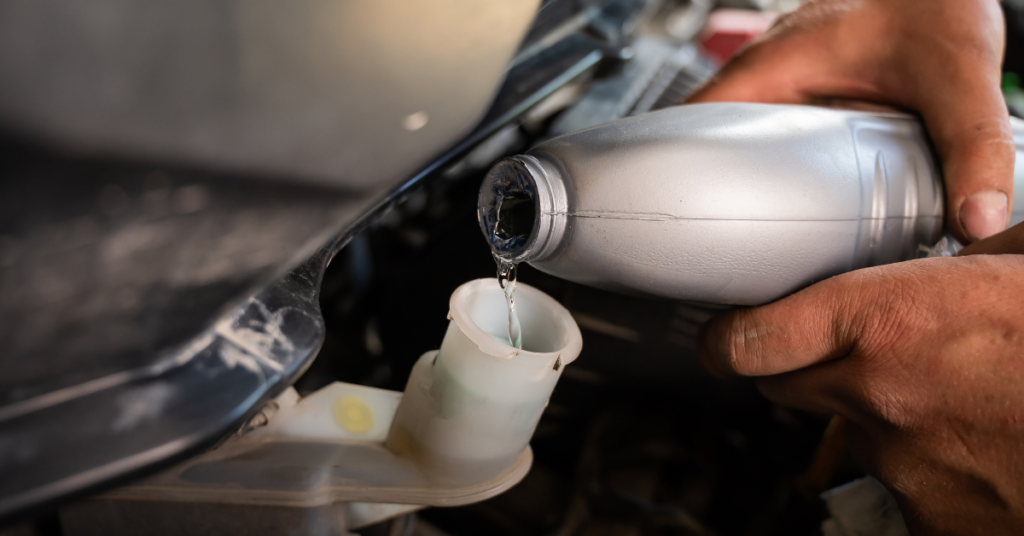
Regular maintenance is key to ensuring the longevity and smooth performance of your vehicle. One essential aspect of vehicle maintenance is the regular changing of transmission fluid.
In this article, we will explore the question: Should I change transmission fluid after 100K miles?
We will delve into the importance of transmission fluid, signs that indicate it may be time for a change, the benefits of regular fluid changes, and the potential consequences of neglecting this crucial maintenance task.
Contents
- 1 Introduction
- 2 Understanding Transmission Fluid
- 3 Should I Change Transmission Fluid After 100K Miles
- 4 The Benefits of Regular Transmission Fluid Changes
- 5 Potential Consequences of Neglecting Transmission Fluid Changes
- 6 Conclusion
- 7 FAQ
- 7.1 1. Should I change the transmission fluid after 100,000 miles?
- 7.2 2. What are the signs that indicate it may be time for a transmission fluid change?
- 7.3 3. What are the benefits of regular transmission fluid changes?
- 7.4 4. What are the potential consequences of neglecting transmission fluid changes?
Introduction
Regularly changing the transmission fluid in your vehicle is crucial for maintaining its performance and longevity.
Transmission fluid serves multiple purposes within the transmission system, including cooling and cleaning the transmission components, as well as providing the necessary hydraulic pressure for smooth gear shifts.
However, over time, transmission fluid can become contaminated or break down, leading to diminished performance and potential damage to the transmission itself.
Understanding Transmission Fluid
Transmission fluid acts as a lubricant within the transmission system of a vehicle. It not only helps in cooling and cleaning the transmission components but also plays a vital role in ensuring smooth gear shifts by providing the necessary hydraulic pressure.
However, as time passes, transmission fluid can become contaminated or break down, resulting in reduced performance and potential damage to the transmission.
To ensure the optimal functioning of the transmission system, it is important to regularly check and change the transmission fluid.
By doing so, you can prevent issues such as overheating, increased friction, and damage to the internal components of the transmission.
Should I Change Transmission Fluid After 100K Miles
While some manufacturers claim that their vehicles are equipped with lifetime transmission fluid, it is important to note that the term “lifetime” can be misleading.
It does not mean that the fluid never needs to be changed. Instead, there are certain signs that indicate it may be time for a transmission fluid change, even if your vehicle has reached the 100,000-mile mark.
Poor Shifting Performance
If you notice delays or rough shifts when changing gears, it may be a sign that the transmission fluid has deteriorated and requires changing.
Proper lubrication is essential for smooth gear shifts, and old or contaminated fluid can hinder this process.
Slipping Gears

A slipping sensation or a failure to engage properly while driving could indicate that the transmission fluid is no longer providing the necessary lubrication and hydraulic pressure.
This can result in difficulty in maintaining the appropriate gear, leading to a decrease in overall performance.
Unusual Noises
If you hear grinding or whining noises coming from the transmission, it could be a sign of worn-out fluid that needs to be replaced.
Contaminated or deteriorated fluid may not provide the necessary protection to the transmission components, causing them to rub against each other and produce unusual noises.
Fluid Contamination

In some cases, the transmission fluid may appear dirty or have a burnt smell. This can be an indication of fluid breakdown and contamination, necessitating a fluid change.
Contaminated fluid can lead to increased friction and heat, which can cause damage to the transmission components if left unaddressed.
By paying attention to these signs, you can determine whether it is time to change the transmission fluid in your vehicle, even if it has already surpassed the 100,000-mile mark.
The Benefits of Regular Transmission Fluid Changes
Regularly changing the transmission fluid, even before reaching the 100,000-mile mark, offers several benefits that can help maintain your vehicle’s performance and longevity:
Improved Transmission Life
Fresh transmission fluid provides optimal lubrication, reducing wear and tear on crucial components.
By minimizing friction, regular fluid changes can extend the lifespan of the transmission itself, potentially saving you from expensive repairs or even transmission failure.
Enhanced Performance
Changing the transmission fluid at regular intervals ensures smoother gear shifts and better overall performance, allowing your vehicle to operate at its best.
With clean and properly functioning fluid, your transmission can efficiently transfer power from the engine to the wheels, resulting in a smoother and more responsive driving experience.
Prevention of Costly Repairs
Neglecting to change the transmission fluid can lead to overheating, increased friction, and potential damage to the transmission. Regular fluid changes can help prevent these issues and save you from expensive repairs.
By investing in routine maintenance, you can avoid the need for major transmission repairs and the associated costs.
Fuel Efficiency

Properly functioning transmission fluid allows the transmission system to operate efficiently, which can contribute to better fuel economy.
With clean and well-lubricated components, the transmission can transfer power more effectively, reducing unnecessary strain on the engine and improving overall fuel efficiency.
By regularly changing the transmission fluid, you can ensure that your vehicle operates at its peak performance, avoid costly repairs, and potentially save money on fuel expenses.
Potential Consequences of Neglecting Transmission Fluid Changes
Failing to change the transmission fluid at appropriate intervals can have detrimental effects on your vehicle:
Transmission Damage
Over time, old or contaminated fluid can lead to increased friction and heat, causing damage to the transmission’s internal components. This can result in costly repairs or even complete transmission failure.
By neglecting regular fluid changes, you risk compromising the integrity of the transmission system, which is a critical and expensive component of your vehicle.
Poor Performance
As the transmission fluid deteriorates, you may experience rough shifting, slippage, or a decrease in overall performance. This can negatively impact your driving experience and potentially compromise safety.
A poorly functioning transmission can lead to unpredictable gear shifts, reduced acceleration, and decreased control over your vehicle.
Reduced Lifespan
Neglecting regular fluid changes accelerates wear and tear on the transmission system, shortening its lifespan and necessitating premature replacement.
By avoiding this essential maintenance task, you risk the need for costly transmission repairs or even the need to replace the entire transmission, a significant expense that could have been avoided with regular fluid changes.
To ensure the optimal performance and reliability of your vehicle’s transmission system, it is crucial to consult your owner’s manual or a trusted mechanic for guidance on the recommended transmission fluid change intervals.
By adhering to these guidelines and being proactive in maintaining your vehicle, you can avoid potential consequences and enjoy a smoother, more efficient driving experience for years to come.
Conclusion
In conclusion, changing the transmission fluid after 100k miles is generally recommended to maintain the performance and longevity of your vehicle’s transmission system.
Signs such as poor shifting performance, slipping gears, unusual noises, and fluid contamination indicate the need for a fluid change, regardless of the mileage.
Regular fluid changes offer benefits such as improved transmission life, enhanced performance, prevention of costly repairs, and better fuel efficiency.
Neglecting this essential maintenance task can lead to transmission damage, poor performance, and a reduced lifespan.
To ensure the optimal performance and reliability of your vehicle, consult your owner’s manual or a trusted mechanic for guidance on the recommended transmission fluid change intervals.
FAQ
1. Should I change the transmission fluid after 100,000 miles?
Changing the transmission fluid after 100k miles is generally recommended to maintain the performance and longevity of your vehicle’s transmission system.
2. What are the signs that indicate it may be time for a transmission fluid change?
Signs that indicate it may be time for a transmission fluid change include poor shifting performance, slipping gears, unusual noises, and fluid contamination.
3. What are the benefits of regular transmission fluid changes?
Regular transmission fluid changes offer benefits such as improved transmission life, enhanced performance, prevention of costly repairs, and better fuel efficiency.
4. What are the potential consequences of neglecting transmission fluid changes?
Neglecting transmission fluid changes can lead to transmission damage, poor performance, and a reduced lifespan of the transmission system.



